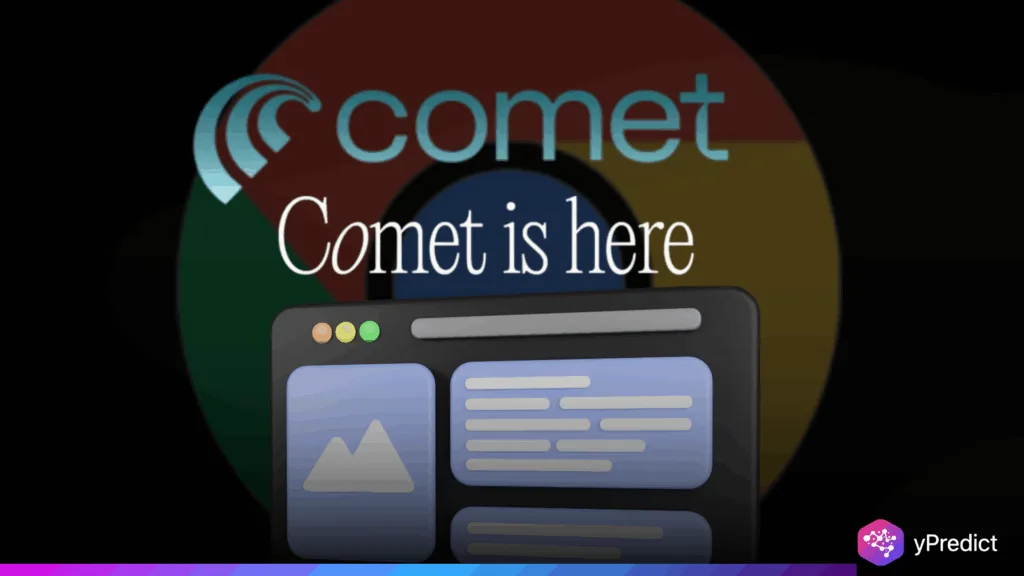
On October 3, 2025, Perplexity AI rocked the browsing world. The company has just made its Comet browser free to all people, all over the world. This tool, previously gated behind a $200/month “Max” plan, is now available to casual users, students, professionals, and beyond. The shift marks a pointed challenge to Google Chrome, which continues to command the majority of worldwide traffic. With AI-powered search and task automation baked in, Comet isn’t your average browser. It assures me it will aid users in cutting through the crap web and getting to what’s important. The timing couldn’t be more poignant.
AI Features Meet Browsing Habits
So what’s unique about the Comet browser? It doesn’t simply pull up search results like Chrome or Safari. It summarizes web pages, untangles difficult content, organizes newsletters, and reduces YouTube videos into bullet points. Say you’re writing a report — rather than mashing ten tabs, Comet aggregates details in real time. That’s the pitch.
Perplexity’s CEO, Arvind Srinivas, says the mission is straightforward—assisting users in combating “AI slop.” The web’s piling up with auto-junk. Comet offers curated results, workflows tailored to your task, and agentic search that feels more like a research assistant than a browser.
But it isn’t limitless. A freemium gives you a limit on heavy use. A $5 “Comet Plus” tier introduces bonuses such as hand-picked publisher news and creator revenue-sharing avenues. That’s where it most diverges from Google — rather than just leaning on ads, Comet provides a possible new content economy.
The pressure is clear. Chrome already tests Copilot-like tools, but Perplexity just made AI-native browsing mainstream, and if lawsuits end up making Google spin off Chrome? Comet is here to bridge that gap. At least, that’s the gamble.
Risks, Reactions, and India’s Debate
The excitement comes with warnings. Security researchers pointed out phishing risks and malicious code issues. Many Comet browser tasks are proxied through third parties, which creates attack windows. Privacy advocates also sound alarms. It lacks full encryption or anonymous modes, and skeptics fear Perplexity might wind up with a data-hungry model like Google’s.
And then there’s money. Perplexity’s also teased potential ads down the line. That rattles users already wary of how their surfing habits get monetized. A previous pcmatic.com report identified related concerns months earlier.
Public response is mixed. Tech guides in India rejoice in broader reach, but sniffers say it’s overhyped. Others make a case for local options such as Zoho’s Ulaa. Some accuse the network of favoritism, with Airtel subscribers receiving slicker access—reminiscent of Jio’s pioneering playbook. Internationally, the rumors were even more rampant, with some joking about a $34.5 billion bid to purchase Chrome. That’s fiction, but it points to how seriously folks are taking Comet.
For casual users, the crucial decision is equilibrium. Do you prefer intelligent browsing and AI assistance, or is control and privacy number one? That’s the tension Comet has surfaced.
Conclusion
Comet browser’s launch is a milestone in web history. Going free, Perplexity has democratized AI-native browsing, making it available to all and not just privileged academics. It provides quickness, capsule overviews, and workflow automation—but also sparks genuine issues of privacy and security. Some call it a new standard, others caution it’s yet another snare. Either way, the tide has turned. Google now has a challenger built for AI from the get-go. Regardless of how broadly users embrace it, it hinges on a single factor: trust. And in our digital era, trust is more difficult to earn than functionality.





